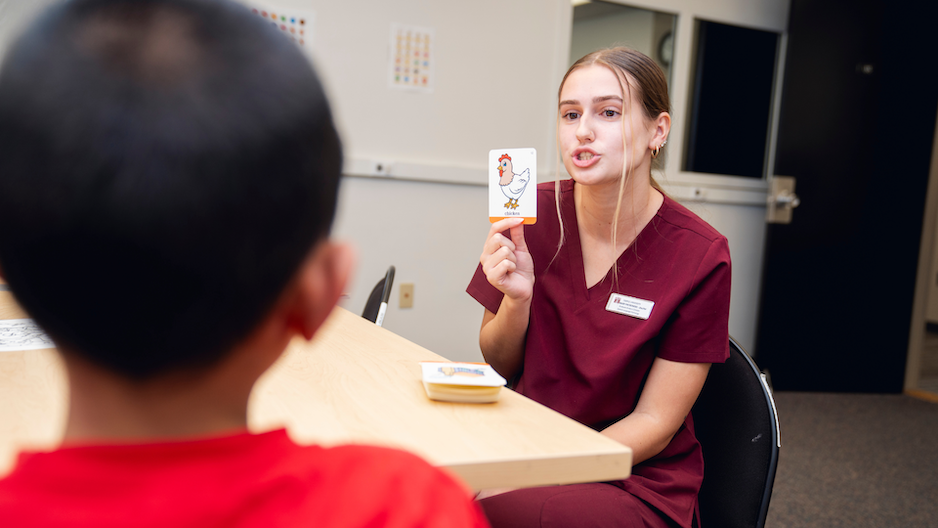As we reflect on Hispanic Heritage Month, Temple University’s Department of Communication Sciences and Disorders (CSD) continues to stand out for its groundbreaking work in bilingual speech and language assessment, particularly for Spanish–English speakers. Through the Temple University Speech-Language-Hearing Center and the HABLA lab, the department is developing more effective and culturally sensitive assessments for bilingual children, ensuring they receive appropriate care in both educational and healthcare settings.
Dr. Lisa Bedore, chair of the department, has been key to these advancements. Her research has reshaped how we understand language development and disorders like developmental language disorders in bilingual children. By promoting dual-language assessments that account for a child’s experience in both languages, she challenges traditional methods and improves diagnosis and support for bilingual children.
In the Department of Communication Sciences and Disorders, research on bilingualism is integrated into education and clinical practice, guiding the methods used to assess and support bilingual children. By using bilingual speech samples, language experience questionnaires, and other innovative tools, the center ensures more accurate, holistic evaluations. Dr. Bedore and the department emphasize that bilingual children with DLD can thrive in both languages, focusing on fostering development in both to support the child’s overall growth.
Beyond diagnosing language disorders, the department’s commitment extends to improving health literacy for bilingual families. Dr. Bedore’s emphasis on providing healthcare information in multiple languages reflects the department’s broader mission to remove language barriers in healthcare access. “Language can often be a barrier to healthcare access,” Dr. Bedore explains, “but by ensuring that health information is accessible in both English and Spanish, we can help bridge gaps in understanding and empower families to make informed decisions.”
Dean Jennifer Ibrahim highlights the importance of this work and shares her excitement: “I am so proud that by prioritizing bilingual service delivery, we are advancing health equity and ensuring that every child, regardless of language background, has access to the care and resources they need to succeed.”
By integrating research and clinical practice, Temple University’s CSD department is leading the charge in creating more inclusive and equitable environments for bilingual children. Their efforts to celebrate linguistic diversity and advance health equity are making a meaningful impact on the lives of bilingual families throughout the region.

